Brynawel House: helping people find joy in recovery
Brynawel House is a residential rehabilitation centre for adults with addictions. They also offer a specialist residential programme for adults with alcohol-related brain damage (ARBD).
Brynawel House is a residential rehabilitation centre for adults with addictions. They also offer a specialist residential programme for adults with alcohol-related brain damage (ARBD).
Sue Gwyn, CEO, shares about the complex challenges facing Brynawel and the people they work with, and how the Foundation’s funding has helped them set up vital aftercare services to give people the best chance of continuing their recovery once they leave the programme.
People who come to us with substance use disorder have often got long standing problems, maybe with trauma, mental health issues – factors in their life that drive them to take substances, because the only reason anybody uses any drug is to change how they feel. It might be that they can't sit with some feelings, or they're trying to forget something or to escape an emotional state they wouldn't otherwise manage. So, we look at those cues and those drivers and how people can manage their triggers.
Our group therapy programme is focused on giving people a different toolkit of strategies to live life on life's terms. We use something called Dialectical Behaviour Therapy (DBT) which teaches people things like distress tolerance skills, interpersonal skills and how to navigate conflict. And we have a great therapy team here who are very experienced and help people work through personal issues on a one-to-one basis.
We look at each person in a holistic way. Aside from the individual and group therapy, we offer many other activities to help with physical and mental health – yoga, tai chi, meditation, gardening, gym and personal fitness. We also look at people’s diets and we make sure that we’re providing good quality food with the nutrition that they need. We want everything here to be of an excellent quality – people shouldn't have to feel grateful for coming into rehab, they should have a quality experience. We want people to find joy in recovery.
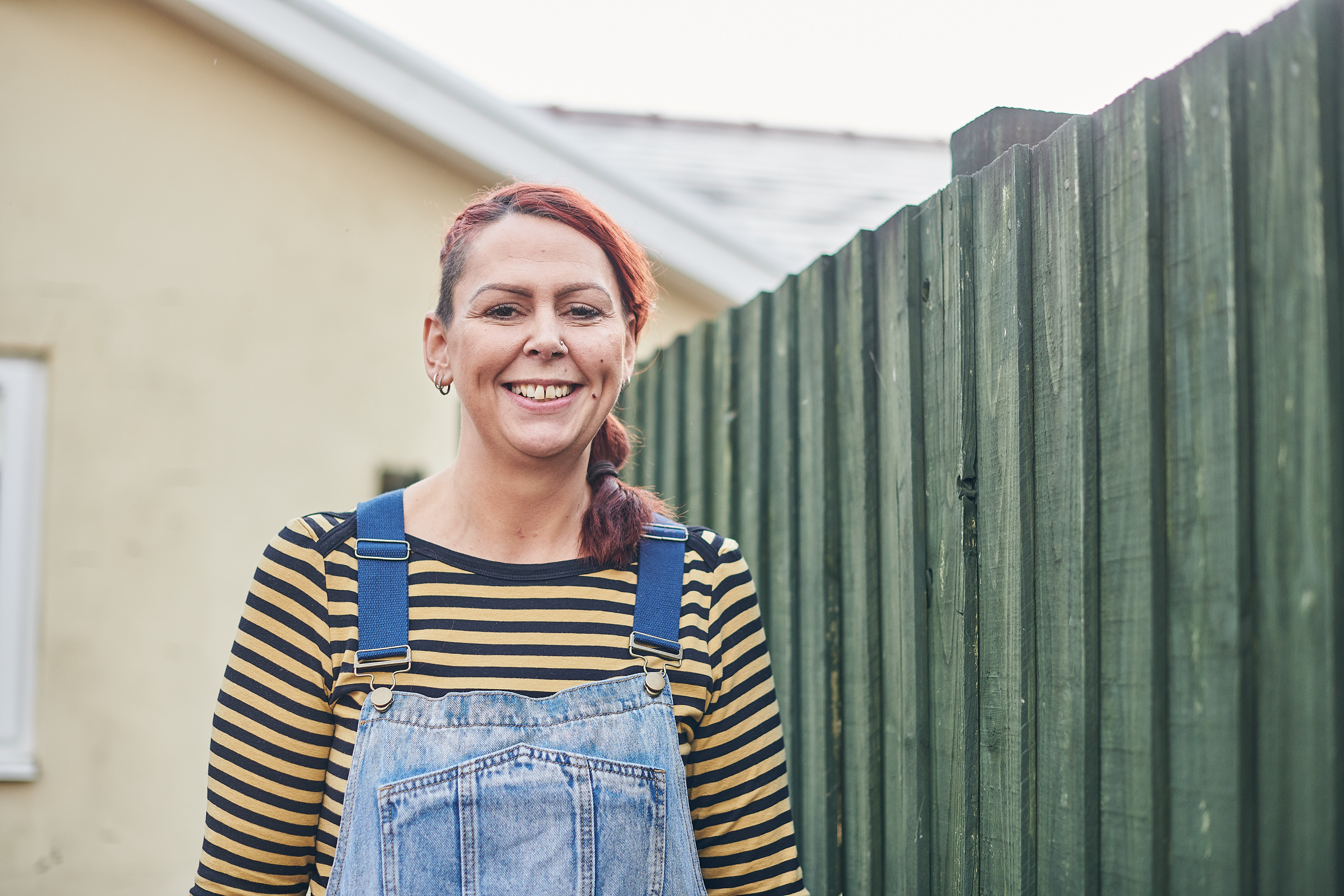
Rebecca went through the recovery programme at Brynawel and now attends the Beyond Brynawel support group
I thought it was the end for me, I didn't think anyone could help me, I was so low, and I just given up on life, basically. But I can’t believe the change that happened in me. And that's all from the therapy. The environment is really nice. The bond you form with people is like nothing I've ever experienced. I don't even recognize myself anymore.
– Rebecca, ex-resident of Brynawel
We’ve also got a specialised programme, which is currently the only not-for-profit programme in Wales for rehabilitating people who've got alcohol-related brain damage (ARBD). ARBD affects people who have been drinking alcohol heavily for many years. It is not very well understood, which means it is often not picked up in the community or by services at all. Generally, people will present with memory problems, lack of motivation, difficulty with activities of daily living and planning.
One of the saddest things for this group of people is that if they're not correctly diagnosed in a timely manner, and if they're not offered rehabilitation, a lot of them can end up living in nursing homes at quite a young age. But we know that 25% of people with ARBD, if they're rehabilitated properly, will make a complete recovery, and another 50% will make some form of meaningful recovery. That’s why we’re committed to providing this much needed intervention for people with ARBD. But one of our main challenges is that there is no clear funding stream for people with ARBD.
We sometimes diagnose people when they come in, and because of their complex needs they aren’t able to participate in our main programme. But when we go back to the funder, they won’t fund their place on the ARBD programme because it’s more expensive. This funding problem means that people can’t get the specialist support that they need and they can end up in hospital or a residential home – which costs more in the long run.
We are feeding back to the Welsh Government about the gaps in the systems and the challenges that we are experiencing. For example, at the moment, I'm putting together a letter from the board of trustees to the health minister about some of the trends and challenges that we're seeing with ARBD. We also respond to consultations on other relevant topics such as substance misuse frameworks.
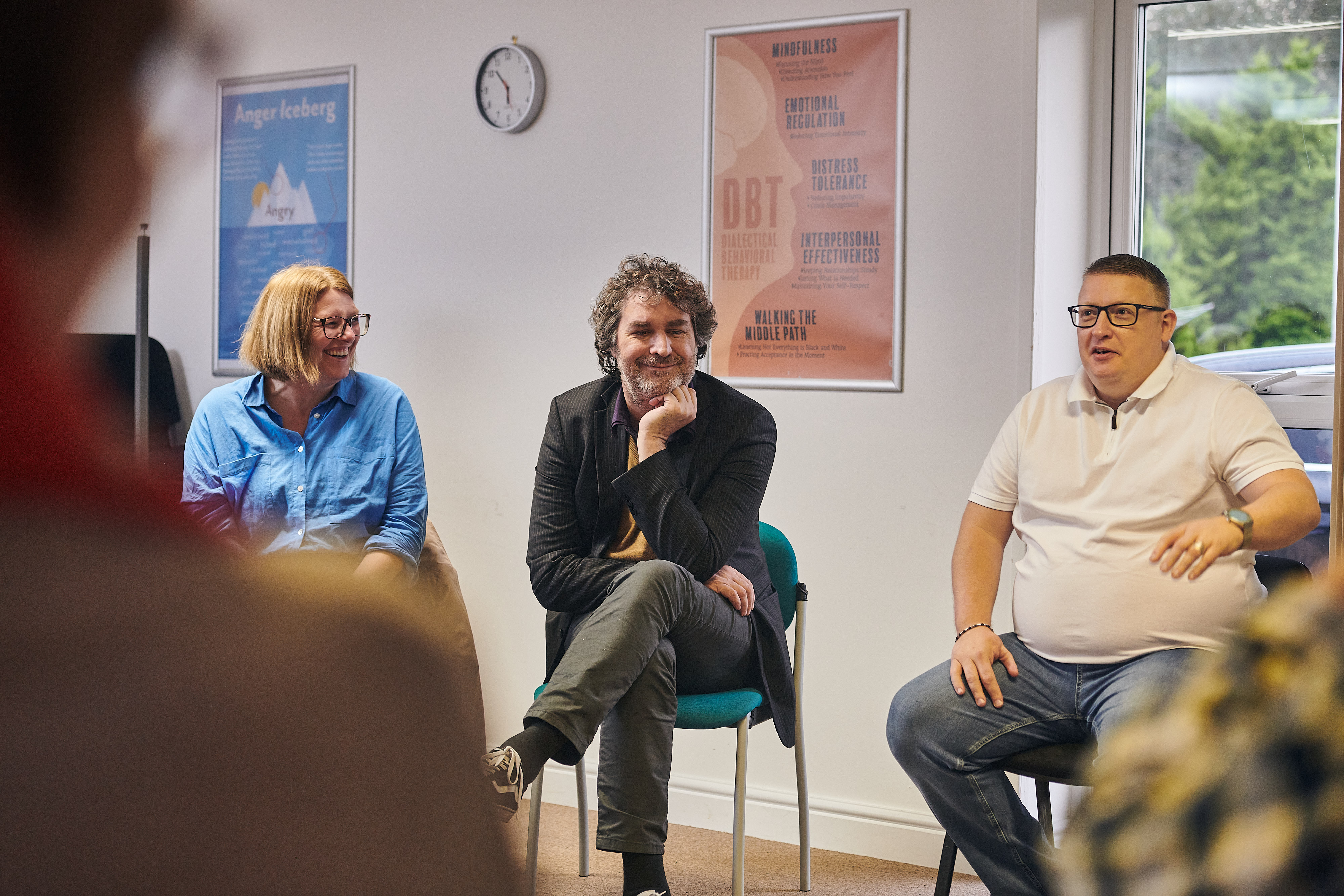
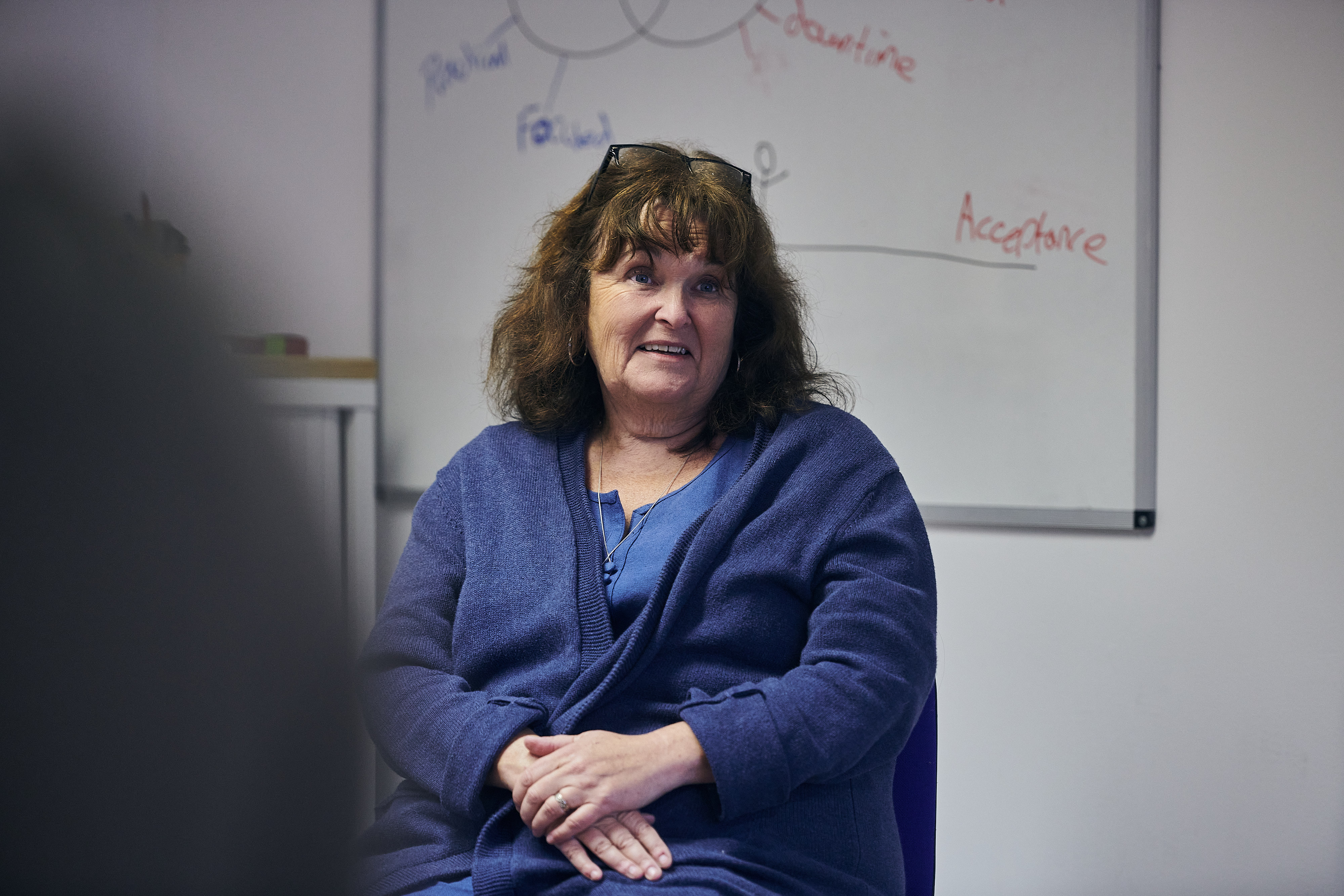
One of the main challenges people are facing when they come to us, aside from addiction, is mental health. We work with some people with very complex needs and many of them have not been able to get any meaningful engagement from community mental health services. But I'd like to think when they come here, they get their mental health needs addressed too. We try and look at the two in tandem.
People coming into rehab at the moment are far more unwell than we've seen historically. During the pandemic a lot of people started drinking at home who hadn't previously been drinking at home – or if they were drinking, they started drinking more. And a lot of services closed their doors throughout Covid. So a lot of people who would otherwise have perhaps been seen about their liver function tests, and their mental health, were not able to access that support. A lot of those services were pretty much suspended for two and a half years and during that time people became much more unwell.
As a result, the demand for our services has gone up. We have 21 beds here and a few years ago we could not get the occupancy, but now we are full. That’s been quite a challenge for us as a staff team, because suddenly all the staff are having to work harder, and our resources have to stretch further.
If residents receive local authority funding, that covers the core costs of the 16 weeks of rehabilitation. But that's not enough. Because the wrap-around support is so important – like access to employment, aftercare services, family support, all of that is crucial to people’s ongoing recovery. People think recovery is a linear line. But that's rarely the case.
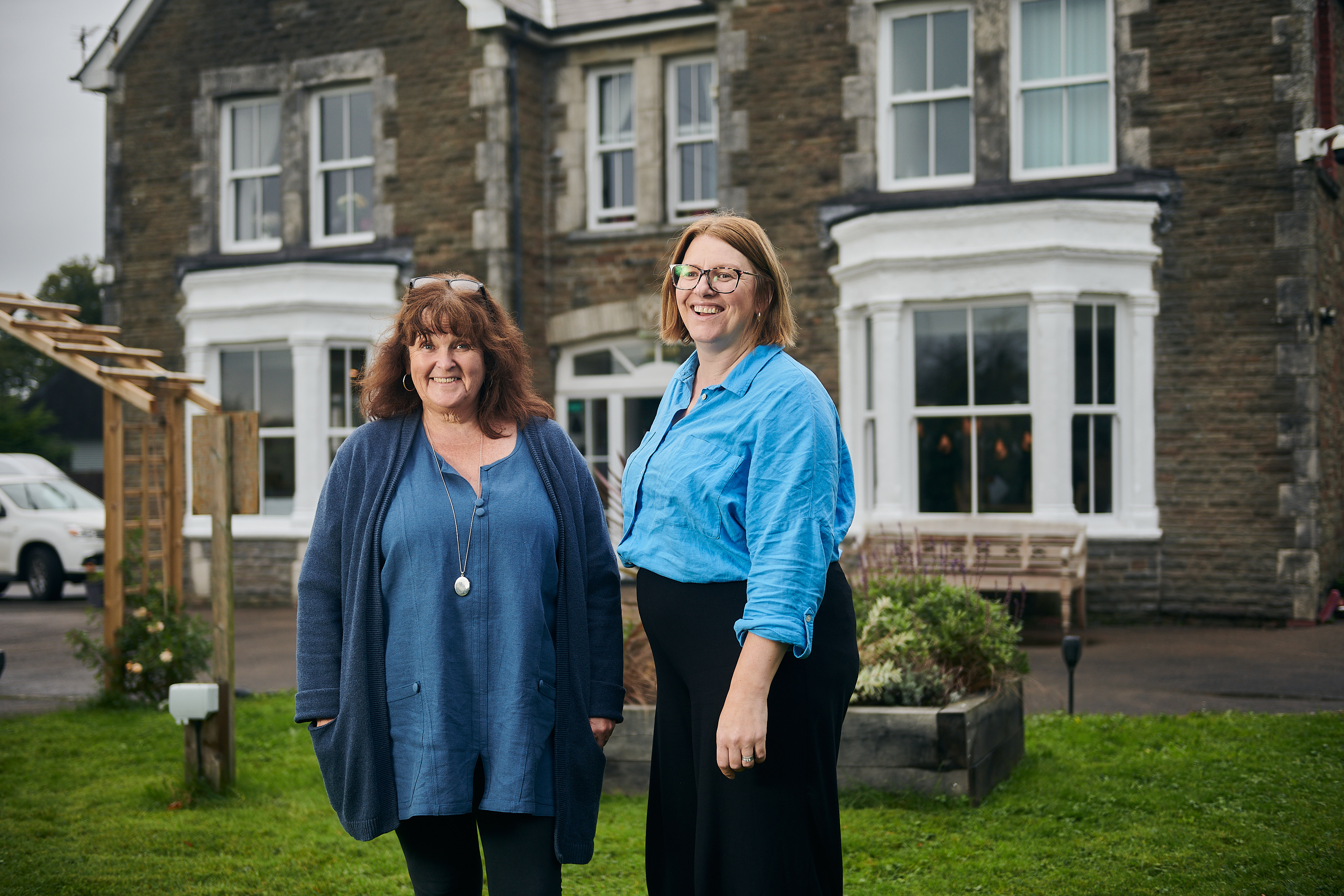
CEO of Brynawel, Sue Gwyn, with Rachel Marshall, Lloyds Bank Foundation Regional Manager
The unrestricted funding we have received from Lloyds Bank Foundation has enabled us to set up Beyond Brynawel, a group for ex-residents to meet together on a weekly basis. And we’ve also been able to employ a full-time worker to support people in the communities after they leave.
Being able to provide these aftercare services gives people the best chance of sustained recovery, because relapsing after leaving rehab is quite common. The Beyond Brynawel group has enabled people to maintain contact with this recovery community and continue to support each other.
– Sue Gwyn, CEO of Brynawel House
We’ve now got one full-time worker who works with people in their communities once they leave Brynawel. They visit people at home, and help them with volunteering opportunities, finding a job, and all areas of functioning. They identify any areas that people may be struggling and support them to integrate back into the community and continue their recovery.
A lot of people want to keep that connection with Brynawel and come back to volunteer. We also have a couple of staff here that have been through recovery. Like Karl, who couldn’t wait to come back and volunteer. When he first walked through the door, he couldn't look anybody in the face. He was so broken. But he did really well on the programme and he's carried on his recovery work in the community. He's come to the Beyond Brynawel group and he was volunteering here almost full time. And after a year, the trustees agreed that we could interview him if he applied for a job here, and he's now a member of the recovery team. He's just fantastic, and a shining example of how someone’s life can be transformed.
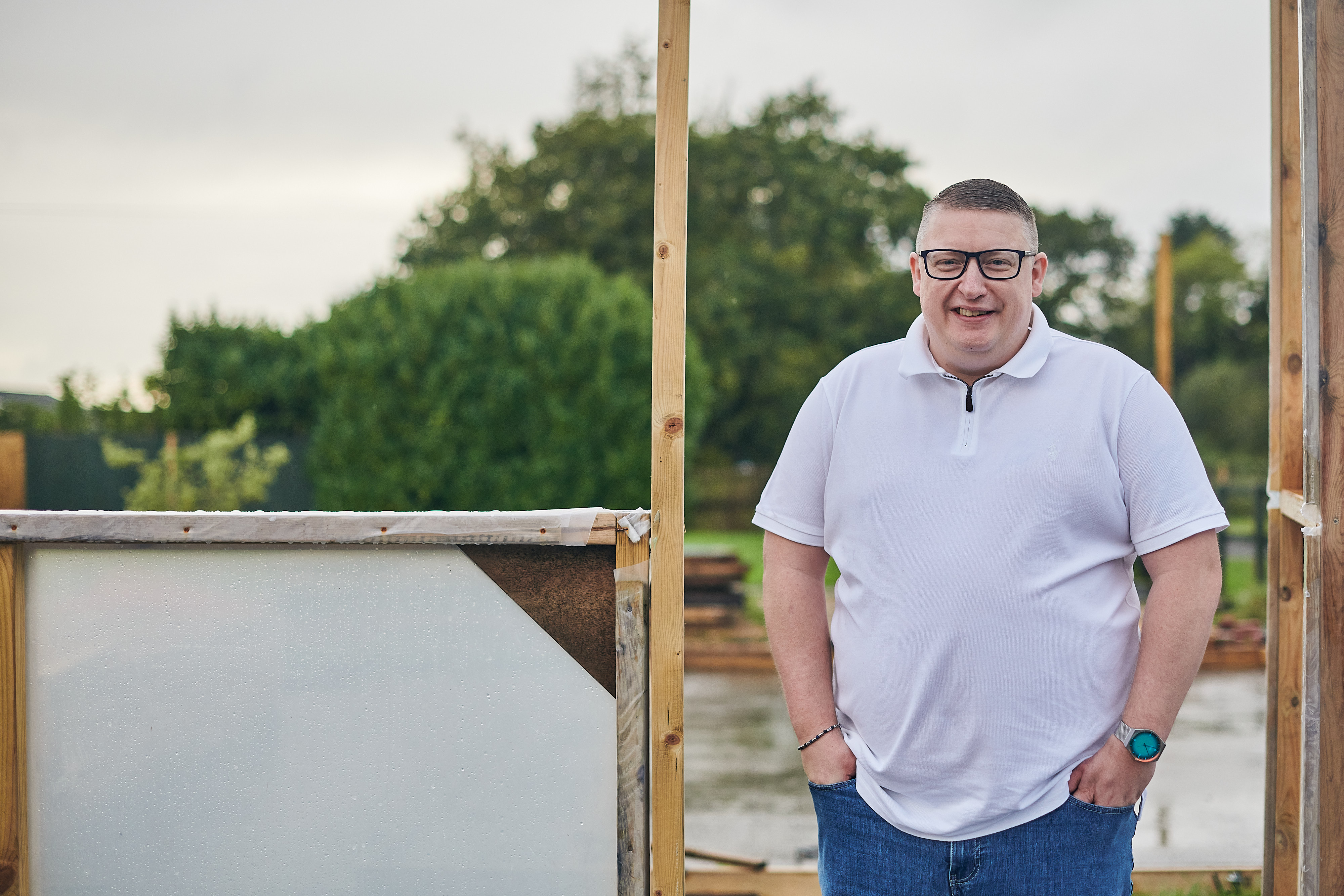
Jamie went through the recovery programme at Brynawel and now attends the Beyond Brynawel support group
I think is extremely important for Brynawel to have an aftercare service. I have the option of being able to call somebody if I need to. For as long as the Beyond Brynawel group is going, I'll return. I’ve got to do something every day, every week, to keep on top of that little devil on my shoulder, because he'll come creeping back at a moment's notice if I rest on my laurels. The group helps me to keep my focus, we're all there to support each other. And the continued support we get from the staff is phenomenal.
– Jamie, an ex-resident of Brynawel
The Beyond Brynawel group was a massive help, because when I left I was pretty depressed. I had a lot of free time to myself, and I did struggle the first few months. At the group you can talk about your struggles, and just get advice and other people may have gone through the same experiences and can share how they’ve overcome those challenges. And you've all gone through this same experience here. So you've all got that in common.
– Karl, an ex-resident who is now a recovery support worker at Brynawel
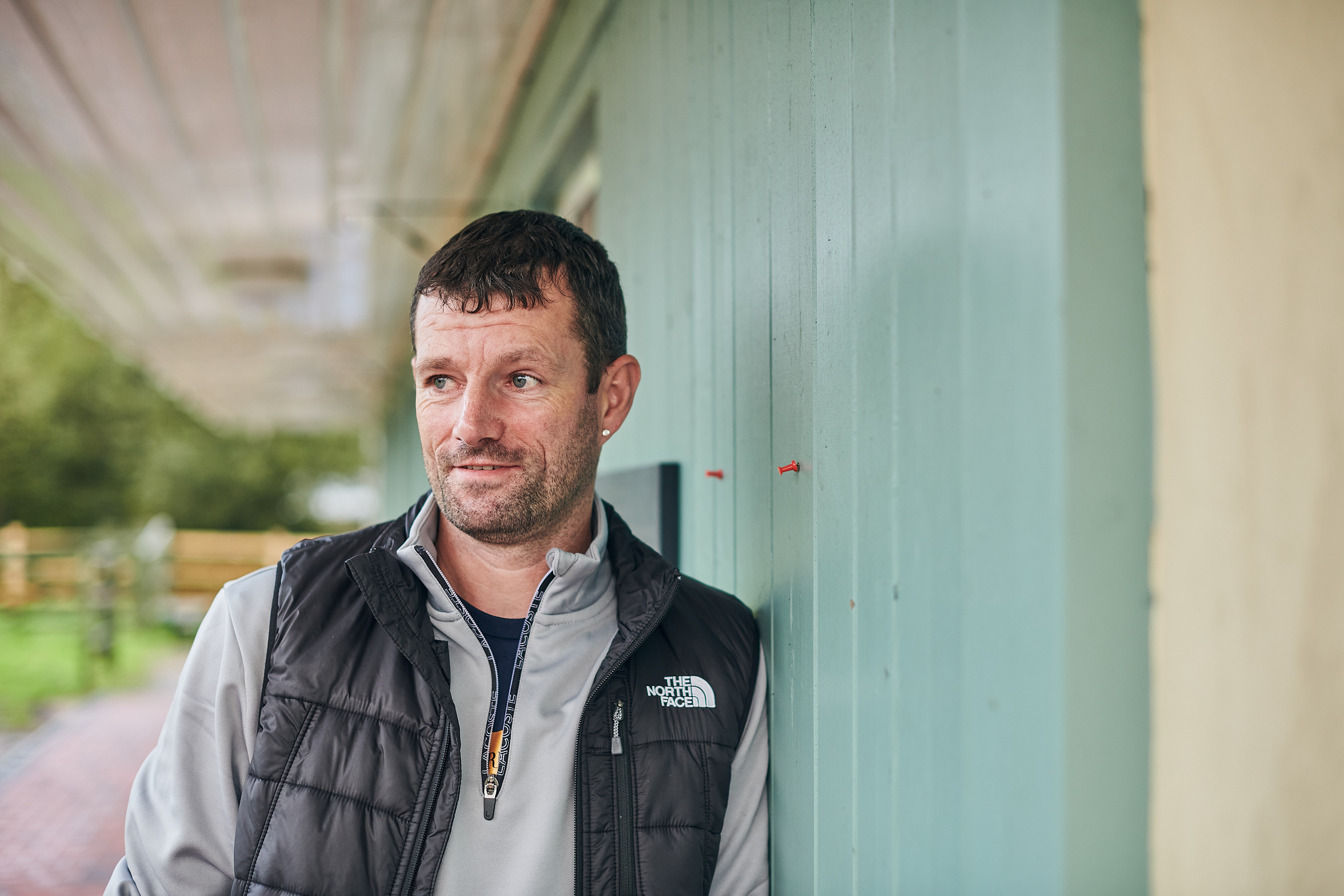
Karl went through the recovery programme at Brynawel and has now joined the staff team as a support worker
We’ve also received non-financial support from the Foundation which has included access to consultants and IT support. One of the most useful pieces of work we’ve done was around benchmarking ourselves as a charity, around governance and marketing. We got together with one of the trustees, the staff, some of the residents, and we benchmarked ourselves out of five on a number of different areas of organisational functioning, and then we've been able to do targeted pieces of work to improve that score. That was really helpful and means we have strategic goals and can track our progress.
Looking ahead to the future, I'm excited about the possibility of getting a social enterprise started, which will generate some surplus to reinvest into the charity. I'm also having some conversations at the moment to look at expanding the estate. We’ve been able to purchase the house next door which is going to be refurbished soon and will become an on-site detox unit. So we’ll be able to support more people, and rather than them waiting for months and months for a detox bed on the NHS, we’ll be able to say, “Come on in.”
I've lived over half my life as an addict. My life now is completely different. I came back as a volunteer after I left here, and now I’m employed as a recovery support worker. And the staff members that helped me get through to where I am are now my colleagues. I can have that different relationship with clients because I know what they're going through and how tough it can be. I just like to keep everyone positive because I know it's possible to recover. It's hard work, it is very hard work, but it's those hard days that you learn the most from.
– Karl, an ex-resident who is now a recovery support worker at Brynawel
If you've been inspired by this Success Story about Brynawel House then you can find out more about their work from their website www.brynawel.org